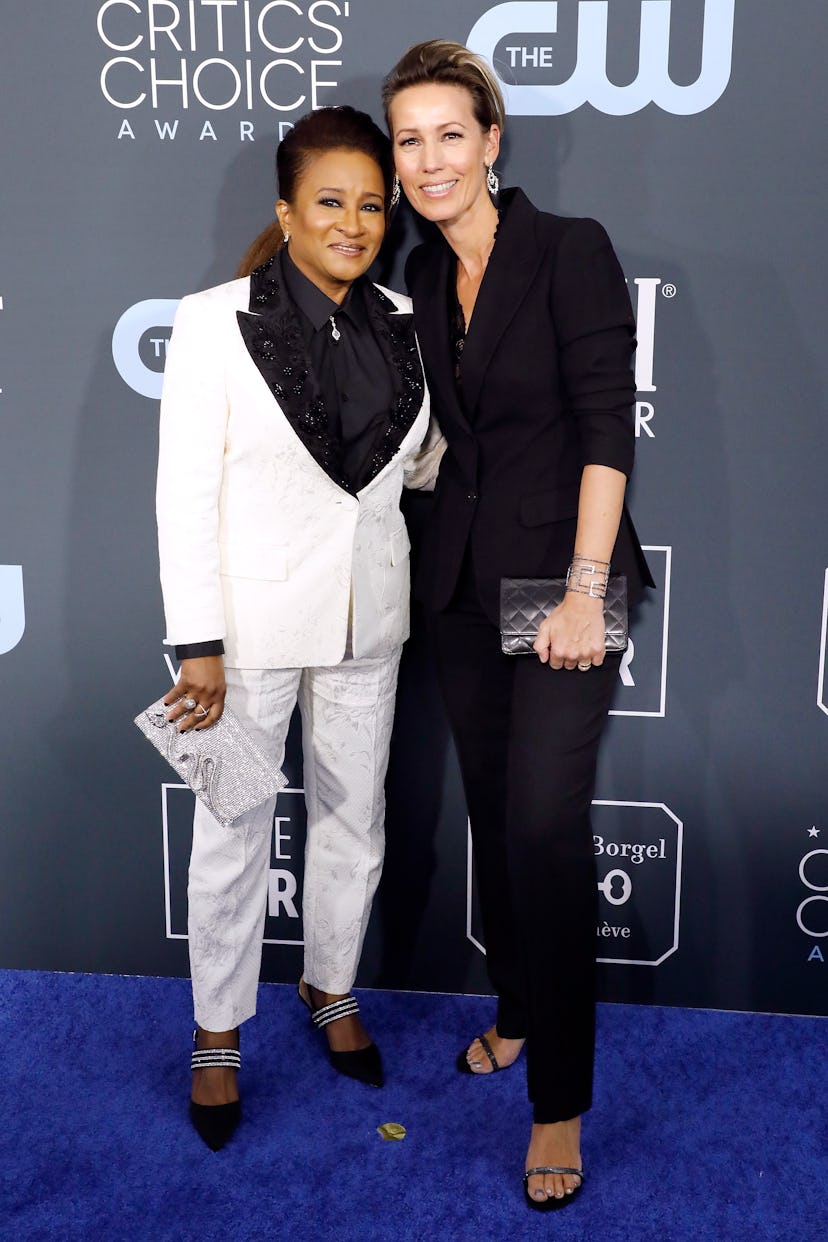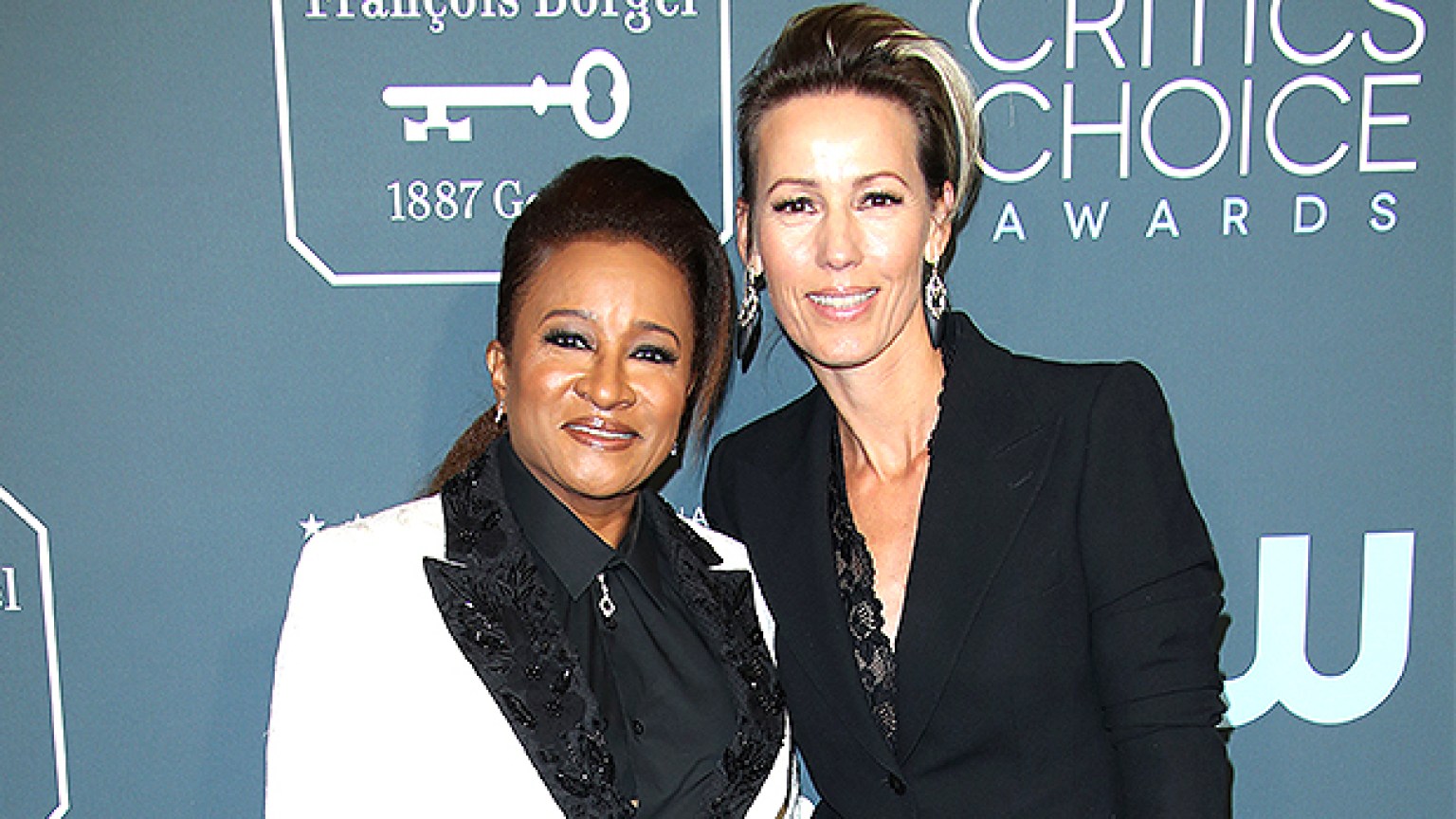Wanda Sykes is one of the most prominent African-American comedians and activists in the entertainment industry, and her family has sparked curiosity and conversation about race and identity. As a public figure, her personal life often becomes a topic of interest, particularly when it comes to her children. The question "Why are Wanda Sykes' kids white?" has been a recurring topic among fans and observers alike. This article delves into the complexities of race, family dynamics, and adoption in modern society.
Understanding the context behind Wanda Sykes' family sheds light on the broader issues of diversity, inclusion, and societal norms. In this article, we will explore the reasons behind the racial differences between Wanda and her children, and how these differences are celebrated and embraced within her family. By unpacking this topic, we aim to foster a deeper understanding of the complexities of identity in today's world.
As we navigate this discussion, it's important to approach the subject with respect, empathy, and an open mind. Wanda Sykes has been vocal about her family and her experiences, making her a powerful advocate for diversity and acceptance. Let's dive into the details and uncover the truth behind this intriguing topic.
Read also:Blue Vs Purple Shampoo Which Is Right For Your Hair
Table of Contents
- Biography of Wanda Sykes
- Wanda Sykes' Family Background
- Understanding the Adoption Process
- Race and Identity in Modern Families
- Media Perception and Public Reaction
- Celebrating Diversity in Wanda Sykes' Family
- Challenges Faced by Multiracial Families
- The Social Impact of Interracial Families
- Wanda Sykes as a Role Model
- Conclusion
Biography of Wanda Sykes
Early Life and Career
Wanda Sykes was born on March 7, 1964, in Portsmouth, Virginia. She grew up in a military family and developed a passion for comedy at an early age. After earning a degree in Communications from Howard University, she pursued a career in stand-up comedy and quickly became one of the most sought-after comedians in the industry.
Her breakthrough came with appearances on popular television shows like "The Chris Rock Show" and "The New Adventures of Old Christine." Over the years, Wanda has established herself as a trailblazer in the entertainment world, known for her sharp wit, humor, and advocacy for LGBTQ+ rights.
Personal Life and Family
Wanda Sykes is openly gay and married to Alex Niedbalski, a white woman. Together, they have two children through adoption. The racial differences between Wanda and her children have sparked curiosity and conversation, but the couple has always prioritized love, acceptance, and inclusivity in their family.
Biodata of Wanda Sykes
| Full Name | Wanda Ventimiglia Sykes |
|---|---|
| Date of Birth | March 7, 1964 |
| Place of Birth | Portsmouth, Virginia |
| Occupation | Comedian, Actress, Writer |
| Spouse | Alex Niedbalski |
| Children | Two adopted children |
Wanda Sykes' Family Background
Wanda Sykes' family is a testament to the beauty of diversity and acceptance. Her marriage to Alex Niedbalski has been celebrated as a powerful example of love transcending racial and cultural boundaries. Together, they have created a nurturing environment for their children, where differences are embraced and celebrated.
Adopting children from different racial backgrounds highlights the couple's commitment to creating a family that reflects the diversity of the world around them. This decision has sparked conversations about race, identity, and the evolving definition of family in modern society.
Understanding the Adoption Process
Factors Influencing Adoption Choices
Adoption is a deeply personal decision that involves numerous considerations. For Wanda Sykes and Alex Niedbalski, the decision to adopt children of a different race was influenced by their desire to provide a loving home to children in need. According to the U.S. Department of Health and Human Services, approximately 123,000 children are adopted annually in the United States, with interracial adoptions accounting for a significant portion of these cases.
Read also:Illuminate Your World The Ultimate Power Style Flashlight Manual
Factors such as availability, compatibility, and the needs of the child often play a role in the adoption process. Wanda and Alex prioritized creating a supportive environment where their children could thrive, regardless of racial differences.
Race and Identity in Modern Families
In today's world, families are increasingly diverse, reflecting a wide range of racial, cultural, and ethnic backgrounds. Interracial families like Wanda Sykes' challenge traditional notions of identity and belonging, highlighting the importance of understanding and acceptance.
Studies have shown that children raised in interracial families often develop a strong sense of identity by embracing both their biological and adoptive heritage. This dual identity allows them to navigate diverse social environments and appreciate the richness of their background.
Media Perception and Public Reaction
Public Curiosity and Misconceptions
The media often plays a significant role in shaping public perception of interracial families. In the case of Wanda Sykes, the question "Why are Wanda Sykes' kids white?" has been a topic of discussion in both mainstream and social media. While some reactions have been positive and supportive, others have been rooted in misunderstanding or prejudice.
It's important to approach these discussions with sensitivity and an understanding of the complexities involved. Wanda Sykes has been vocal about her family and has used her platform to educate and advocate for diversity and acceptance.
Celebrating Diversity in Wanda Sykes' Family
Wanda Sykes and Alex Niedbalski have created a family that celebrates diversity in all its forms. By embracing their children's racial identity and fostering an environment of love and acceptance, they have set an example for others to follow.
- Encouraging open conversations about race and identity
- Providing resources and support for their children's cultural heritage
- Creating a home where differences are celebrated rather than ignored
Challenges Faced by Multiracial Families
While multiracial families offer numerous benefits, they also face unique challenges. Issues such as racial bias, cultural misunderstandings, and societal expectations can create obstacles for these families. However, with the right support and resources, these challenges can be overcome.
Research from organizations like the National Adoption Center highlights the importance of education and advocacy in addressing these challenges. By fostering understanding and promoting inclusivity, society can better support families like Wanda Sykes'.
The Social Impact of Interracial Families
Changing Perceptions of Family
Interracial families like Wanda Sykes' are helping to redefine what it means to be a family in modern society. By breaking down racial and cultural barriers, these families are paving the way for a more inclusive and accepting world.
According to a report by the Pew Research Center, the number of interracial marriages in the United States has been steadily increasing, reflecting a growing acceptance of diversity in relationships and families.
Wanda Sykes as a Role Model
Wanda Sykes is not only a talented comedian and actress but also a powerful role model for diversity and inclusion. Through her work and personal life, she has inspired countless individuals to embrace their differences and celebrate the richness of their identities.
Her advocacy for LGBTQ+ rights and her commitment to creating a loving and inclusive family have made her a beacon of hope for many. By sharing her experiences and using her platform for positive change, Wanda Sykes continues to make a lasting impact on society.
Conclusion
Understanding why Wanda Sykes' kids are white requires a deeper exploration of race, family, and identity in modern society. Through her personal experiences and advocacy, Wanda has become a powerful voice for diversity and acceptance. By embracing the complexities of her family, she has set an example for others to follow.
We encourage readers to continue the conversation about diversity and inclusion, and to support families like Wanda Sykes' in their journey. Share this article with your friends and family, and explore other articles on our site to learn more about the topics we've discussed.


